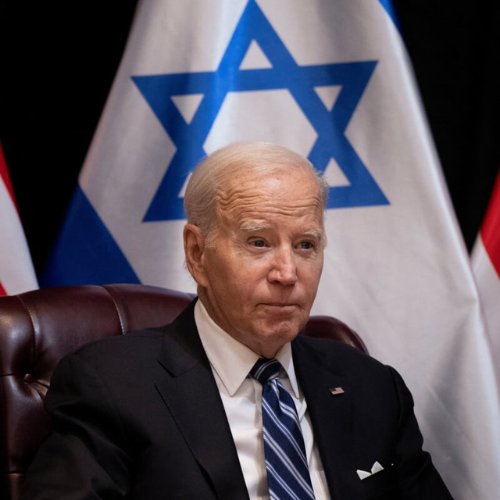Recently, the Biden administration made a controversial decision to allow a U.S.-based nonprofit to hold a meeting in Beirut, Lebanon, attended by representatives of Hamas and Hezbollah. Both organizations are internationally recognized as terrorist groups responsible for violence and instability in the Middle East.
This decision reversed a 2022 ruling by the Treasury Department, which had previously barred such meetings under U.S. sanctions laws. The reversal raised concerns about whether the administration is softening its stance on groups like Hamas and Hezbollah, known for attacks on Israel and their stated goal of its destruction.
At the same time, Biden’s administration introduced a new sanctions program targeting individuals in the West Bank, a region with longstanding tensions between Israelis and Palestinians. Critics argue that this approach unfairly singles out Israeli Jews while doing little to address broader security threats in the area.
New Sanctions on Israeli Citizens
In June, Biden signed Executive Order 14115, a directive that empowers the U.S. government to sanction individuals deemed to “threaten peace and stability” in the West Bank. The program, however, has faced backlash for targeting Israeli Jews over minor infractions like property disputes, petty vandalism, and non-violent political activity.
These sanctions differ from traditional U.S. actions, which typically focus on large-scale crimes such as terrorism, human rights abuses, or illegal arms trafficking. Instead, the administration has used this order to punish farmers, protest organizers, and NGOs working in the West Bank, many of whom have not been accused of violent acts.
Hezbollah’s Media Chief Mohammed Afif Killed in Beirut by Israeli Airstrike
One example is an Israeli nonprofit providing volunteers to protect farms from theft and terror attacks. The organization was sanctioned despite operating within Israeli law. Critics argue that Biden’s policy unfairly punishes everyday Israelis while leaving broader Palestinian threats unaddressed.
Controversy Over Information Sources
The way sanctions targets are chosen has also raised red flags. Reports suggest that the administration relies on information from groups like DAWN MENA, a nonprofit with ties to the Muslim Brotherhood and a history of opposing Israel’s right to exist. Using such sources has led to accusations that the sanctions are politically motivated and biased against Israeli Jews.
Adding to the controversy, 88 members of Congress recently urged Biden to expand sanctions further. They demanded actions against Israeli officials, organizations, and even private citizens for their political views. Critics claim this sets a dangerous precedent, with the U.S. government punishing Israelis based on unreliable and politically charged allegations.
Meanwhile, sanctions have severe impacts on those targeted. Unlike wealthy oligarchs or terrorist leaders who can hide assets, many of the sanctioned Israelis are ordinary citizens. They face frozen bank accounts, canceled credit cards, and an inability to conduct daily financial activities.
This aggressive sanctions policy has drawn international attention, with countries like Canada and Britain implementing similar measures. Observers worry this could fuel broader anti-Israel efforts, such as the Boycott, Divestment, and Sanctions (BDS) campaign, which aims to isolate Israel on the global stage.
The sanctions and their expansion have left many questioning the administration’s priorities and its commitment to supporting a key U.S. ally.


